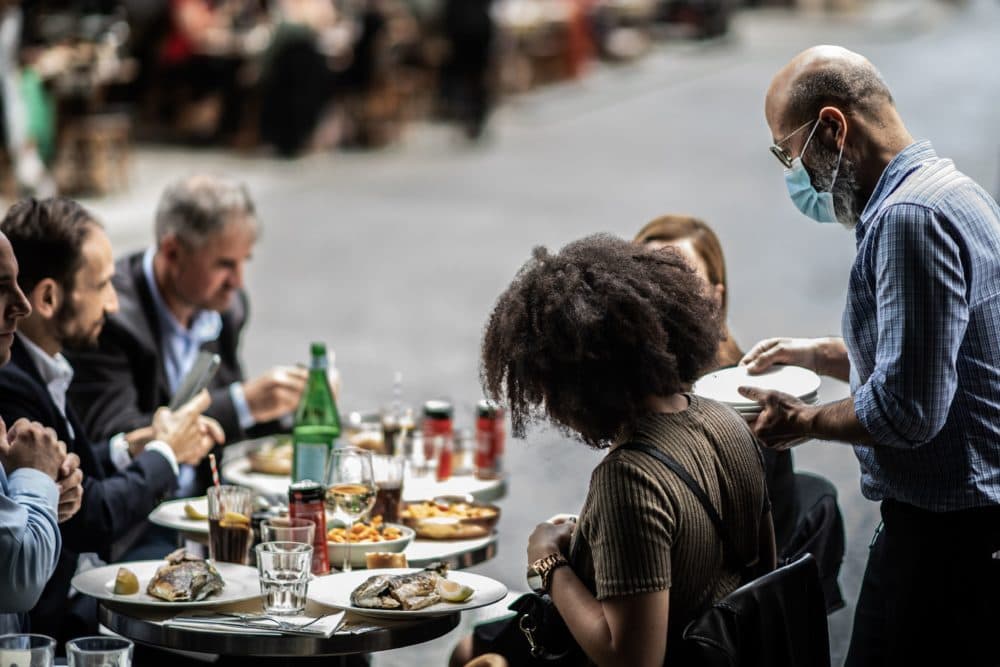Advertisement
'Be A Little Kinder': Restaurant Server Shares His Fears During COVID-19 Pandemic

Service workers on the front lines of the COVID-19 pandemic — bagging groceries, serving and delivering food — have jobs that leave them vulnerable to the disease.
In Los Angeles County, the number of COVID-19 cases are high at warehouses, retail stores and manufacturing plants, where a significant percentage of workers are Black, Latino and Indigenous.
One of those workers is Brian Ramian, an Acjachemen filmmaker who has worked in the service industry for more than 20 years. In a recent op-ed for the Los Angeles Times, he wrote that the culture of the restaurant industry allows owners, managers and demanding customers to diminish workers.
The same idea applies to other service jobs such as grocery store workers, Uber drivers, hairdressers and nail technicians. At restaurants, some customers feel they can treat workers with less respect because they’re paying for a service, he says.
This sense of entitlement can also include managers and chefs who mistreat employees, which Ramian says he experienced in some fine dining restaurants.
“We don't seem to have a collective care for one another inside other spaces,” he says. “People's lives are at stake, or at least some people feel like their lives are at stake. And that's important to respect.”
During his first night back at work, he served hundreds of diners — some wearing masks, others not. COVID-19 adds to the existing stress of moving at a fast pace to meet the demands of management, chefs and customers, he says.
On top of micromanaging and multitasking, he struggles to breathe with a shield an inch away from his eyes as people bump into him, talk and laugh.
Prior to the restaurant reopening, Ramian hadn’t seen anyone other than his children and some close family since lockdown began. Now back at work, the exposure to so many people has given him headaches and a panic attack during a shift.
The restaurant he works for closed in mid-March and reopened in May. When restaurant management called him about reopening, Ramian says he didn’t want to go back.
Advertisement
He felt hesitant about going back to work for several reasons: not knowing what to expect, fear of coming home to his kids after being around people and recommendations to stay inside. Money wasn’t one of his primary concerns, but he highlights that some people need to get back to work to pay the bills.
“There are a lot of people that I work with that might not be able to get the federal assistance that some of us are getting,” he says.
As California enters its second phase of shutdowns, many people have no choice but to risk their health to work. Ramian calls for a “restaurant revolution” to help people become more careful and thoughtful in their actions.
Diners need to be more conscious of how they treat restaurant staff putting their lives at risk — from the server taking your order to the busboy sanitizing the space, he says.
“If you're sitting down in a restaurant, just be a little bit more aware of how you talk to people,” he says. “Be a little bit kinder.”
Ciku Theuri produced and edited this interview for broadcast with Tinku Ray. Allison Hagan adapted it for the web.
This segment aired on July 22, 2020.

